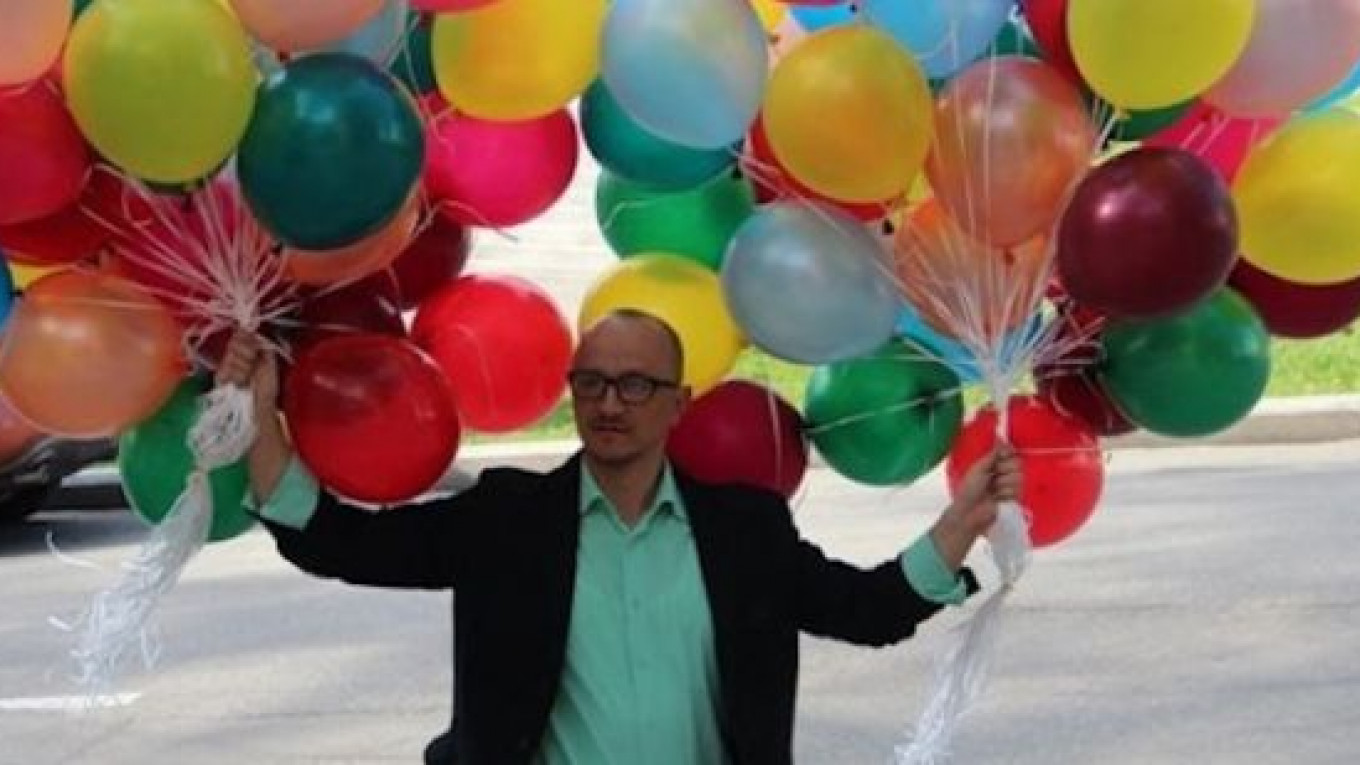Gay rights activist Alexander Yermoshkin said Thursday that local authorities had approved his request to hold a public event against LGBT discrimination on May 17, a move that may see Russia's controversial anti-gay propaganda law tested.
Other gay rights activists, particularly Moscow's Nikolai Alexeyev, have frequently complained of applications for similar, smaller scale events for the LGBT community being refused.
Yermoshkin, a gay rights activist and Khabarovsk resident, was fired from his 18-year career as a geography teacher in the aftermath of Russia's anti-gay propaganda law being enacted last summer.
The anti-gay propaganda law bans "propaganda of nontraditional sexual relations among minors" and has sparked international outrage since its signing in June 2013.
Yermoshkin posted on his Facebook page that authorities had agreed to let him hold an event where he and up to 100 people would release a rainbow of balloons into the sky. The event will mark the International Day Against Homophobia.
In his application to hold the event on May 17, Yermoshkin wrote that the action was meant to show "resistance to fascism, a fight against discrimination of any kind, including discrimination against representatives of the LGBT community."
Yermoshkin told The Moscow Times by phone from Khabarovsk that he had also submitted an application last year, which was accepted, though it was before the anti-gay law took effect on the federal level. This year, he copied last year's application for the same event to the letter and approached authorities "very formally" with his request, he said.
"Provoking a reaction [from authorities] was never my goal … so I sent in a very traditional application," he said.
He told local news media earlier that he intended to sue authorities if they refused the application.
Whereas previous events held on May 17 included posters expressing gay pride, Yermoshkin adapted this demonstration — which has been held seven times — by scrapping the posters and scaling it down to the simple release of balloons with people's wishes attached.
Though authorities granted permission for the event, Yermoshkin may encounter problems similar to those he faced last year, when members of the Nazi-inspired Stoltz Khabarovsk group showed up to the event and threatened participants.
He said he didn't exclude the possibility of such harassment being repeated this year, since an anti-gay Vkontakte group was already discussing the event.
A Message from The Moscow Times:
Dear readers,
We are facing unprecedented challenges. Russia's Prosecutor General's Office has designated The Moscow Times as an "undesirable" organization, criminalizing our work and putting our staff at risk of prosecution. This follows our earlier unjust labeling as a "foreign agent."
These actions are direct attempts to silence independent journalism in Russia. The authorities claim our work "discredits the decisions of the Russian leadership." We see things differently: we strive to provide accurate, unbiased reporting on Russia.
We, the journalists of The Moscow Times, refuse to be silenced. But to continue our work, we need your help.
Your support, no matter how small, makes a world of difference. If you can, please support us monthly starting from just $2. It's quick to set up, and every contribution makes a significant impact.
By supporting The Moscow Times, you're defending open, independent journalism in the face of repression. Thank you for standing with us.
Remind me later.






